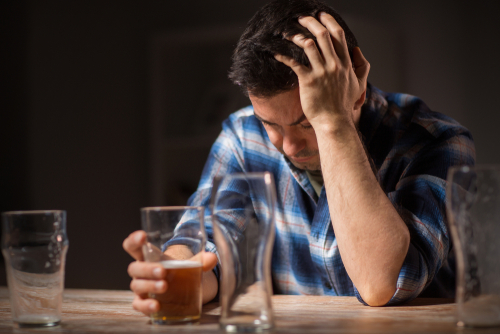Why Alcohol Addiction Runs in Families
There’s research out there, but most int he recovery community don’t need a white paper or article explaining the findings from John’s Hopkins, or Betty Ford. Instead, they know from direct experience that when addiction rears its head in a family, it will take more than one person. Alcohol addiction is quite possibly the easiest to share addiction as it is legal and generally easy to access.
Alcohol also has the image of being a way to cope, it’s a social drug, and typically it’s made its way into various families through good times. Then, things take a turn. From celebrating a birth to drinking alone at night thinking of all the ways the world has done you wrong, it’s not a big step. Some people drink and have no trouble. They can go weeks or months without looking at or thinking about alcohol. Others aren’t so lucky. Contact our Carolina rehabilitation experts for more information.
Genetics and Environment
Genetics plays a massive role in addiction, and the science community is working closely with those leading the recovery industry. Some genes make people more prone to addiction. Others make it more challenging to overcome that addiction. The relation doesn’t depend on closeness. A grandparent, an uncle, or a cousin are all indicators that addiction is likely in your genes.
It is complex. Discussing the matter of genetics in addiction because it largely plays into the nurture/nature argument. How much is the environment, and how much is genetics? We don’t know. Scientists don’t know because there are family-related factors that increase risks such as high levels of aggression, tension, dysfunction, and the presence of alcohol or drugs in the home.
The estimate is that 50-60 percent of addiction correlates to genetics. The estimate is that an addict’s child is eight times more likely to experience addiction. That is not exclusive to illegal substances or alcohol. Addiction is addiction.
Development of “Coping” Mechanisms
How we learn to cope in times of stress starts at a very early age. Even the “cry-it-out” method claims to teach self-soothing at only a few months old. But how many people struggling with alcohol addiction now can recall their parents saying, “I need a drink.” Or maybe you can recall your parent or grandparent coming home complaining about a hard day until they popped the top on a beer.
We often learn alcoholism as a method of coping. We often learn our coping mechanisms from our parents, and it’s no surprise when, as a teen or adult, we lean toward alcohol the same way other adults in our family did. How do we know when we’re passing on these behaviors? We don’t, usually, until we’re also in the thick of addiction. If you’ve noticed that you look forward to that drink at night or know that you wouldn’t call it a day without a drink, then it’s time to get support.
How Real is the Risk for Children and Teens of Addicts?
In 2002 the average use of alcohol among the children aged 12 to 17 was about 20%. Now, as recently as 2018, that number has dropped down to the right above 10%. That’s a dramatic improvement over the course of nearly twenty years. But that’s not the end of the fight. The risk of addiction in children and in teens is extremely high. When alcohol is available and present in the house, the risk is even higher.
U.S. News spoke with a physician who has a family history of addiction and explored what that meant for her. She explained what exactly the children of addicts could do to avoid alcoholism and substance abuse as an adult. However, all too often, this information reaches the children of addicts too late in life.
How Early Should Someone Seek Help if Addiction Runs in Their Family?
Getting help can start long before addiction actually begins ruining your life. But there is no “wrong” time to seek help. The treatment and recovery communities go far beyond helping the people who have lost their families, homes, and jobs. If you want to get involved, contact Rehab Carolinas. However, if you already struggle with addiction and find yourself giving in to the urge to drink, then see us for support in addiction recovery.
Rehab Carolinas takes a big-picture approach to addiction treatment. We look at the family dynamic and offer family therapy. Additionally, there are different types of therapy and treatments available for the individual that needs help. We know that alcohol abuse runs in families, and hopefully, with the right treatment, you can be the end of the line for alcoholism in your family.
